 Geneva, 29 Dul Hijja 1434/3 November 2913 (MINA) – The UN Human Rights Council’s “Universal Periodic Review”(UPR) demands Israel to treat all citizens equally, to end all discriminative applications, ill treatments and torture and leave illegal enforcement in holy places of Islam and Christianity.
Geneva, 29 Dul Hijja 1434/3 November 2913 (MINA) – The UN Human Rights Council’s “Universal Periodic Review”(UPR) demands Israel to treat all citizens equally, to end all discriminative applications, ill treatments and torture and leave illegal enforcement in holy places of Islam and Christianity.
The report on Israel has been completed with a report adopted today. Human rights breaches of Israel, which were identified by many countries and suggestions to end those breaches, were included in the report.
Lifting the death penalty, establishing sexual equality, permitting the formation of an independent human rights agency in the country and cooperation with all international human rights mechanisms are among the suggestions in the report.
The report also demands Israel to treat all citizens equally, end all discriminative applications, ill treatments and torture and leave illegal enforcement in holy places of Islam and Christianity. Anadolu news media reported monitored by Mi’raj News Agency (MINA).
Also Read: International Airlines Suspend Flights After Missile Strike Near Israel’s Main Airport
UN Human Rights Council carries out “Universal Periodic Review” on all countries in every four years.
Israel’s review was originally planned to be made on 29 January 2013 but when the council formed a special commission to review Jewish settlements in the occupied Palestinian territories, Israel had boycotted the meetings.
The report adopted by the UN Human Rights Council today calls for Israel to release all Palestinian, Syrian and Arab detainees in the country, leave occupied Palestinian and Arab soil, end the blockade on the Gaza Strip and stop opening new Jewish settlements in occupied lands.
Israel is expected to reply to the report in a session to be held on March 2014.
Also Read: Palestine Book Awards 2025 Receives Record Number of Submissions
Meanwhile, Israel failed to appear before the Working Group of the Universal Periodic Review (UPR) for its second review scheduled. It is the first time a State does not appear for its own review and this situation created a dangerous precedent for the UPR mechanism, and for the respect for human rights worldwide.
Israel had suspended its relations with the Human Rights Council (HRC). As a consequence, it did not submit a national report. it was therefore expected that it would not participate in its own UPR.
In reaction, the Human Rights Council decided to reschedule its UPR, at the 17th Working Group session (21 October – 1 November 2013) at the latest, and called upon Israel to resume its cooperation with the UPR mechanism. The HRC President was also requested to report at the 22nd or 23rd session of the HRC on his efforts to bring Israel back to the UPR. The decision A/HRC/OM/7/1 – A, C, E, F, R,S adopted by the HRC containing those steps will constitute a precedent to be applied to future cases of non-cooperation.
The Universal Periodic Review (UPR) is a mechanism of the United Nations (UN) Human Rights Council (HRC) that emerged out of the 2005 UN reform process. Established by General Assembly resolution 60/251 of 3 April 2006, the UPR periodically examines the human rights performance of all 193 UN Member States. It is intended to complement, not duplicate, the work of other human rights mechanisms, including the UN human rights treaty bodies. This is the first international human rights mechanism to address all countries and all human rights. The Working Group on the UPR, which is composed of the HRC’s 47 Member States and chaired by the HRC President, conducts country reviews.
Also Read: Spanish MEP Condemns Israeli Attack on Freedom Flotilla Humanitarian Aid Ship
The Working Group on the UPR is composed by the 47 Member States of the HRC, chaired by the HRC President and conducts country reviews. The Working Group held its first review in 2008. It allocates three and a half hours to each review, 70 minutes of which is given to the State under review to discuss its domestic human rights framework, measures taken to promote and protect human rights in country, human rights issues of particular national pertinence, and steps taken to address and redress violations.
It is also an opportunity for the State to present voluntary human rights pledges and commitments. An interactive dialogue of 140 minutes follows the State’s presentation, during which UN member States question the State and make recommendations towards the improvement of its human rights situation and performance. It is worth noting that all 193 UN member states (both HRC members and not) can take the floor.(T/P04/P03/E1).
Mi’raj News Agency (MINA)
Also Read: Indonesian FM at ICJ: Israel Violates International Law










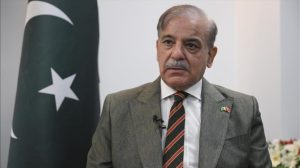

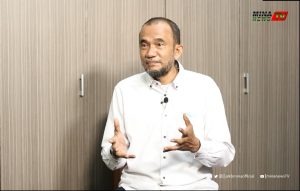






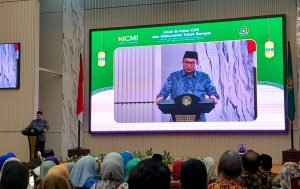
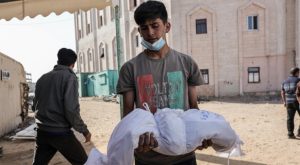
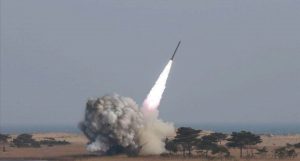

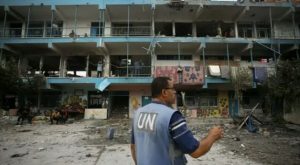

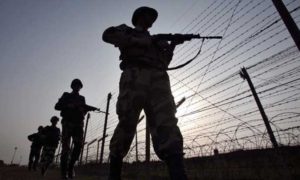
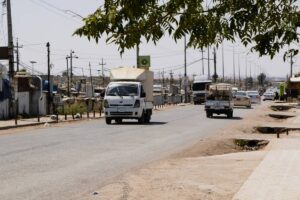



 Mina Indonesia
Mina Indonesia Mina Arabic
Mina Arabic